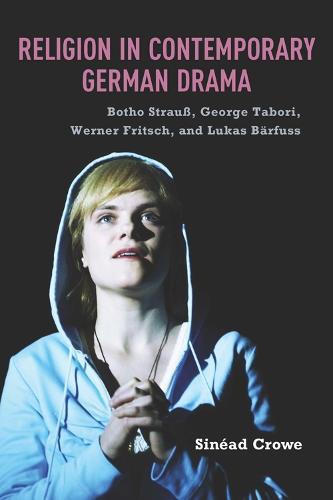Overview
Investigates German religious drama since the 1970s, asking the question whether it develops religious themes or only exploits religious motifs, and exploring how it reflects the changing place of religion and spirituality in theworld. Critics often claim that the twenty-first century has seen a sudden ""return"" of religion to the German stage. But although drama scholarship has largely focused on politics, postmodernity, gender, ethnicity, and ""postdramatic"" performance, religious themes, forms, and motifs have been a topic and a source of inspiration for German dramatists for several decades, as this study shows. Focusing on works by four major dramatists - Botho Strauss, George Tabori,Werner Fritsch, and Lukas Barfuss - this book examines how, why, and to what effect religion is invoked in German drama since the late 1970s. It asks whether contemporary German drama succeeds in developing religious insights or is at most quasi-religious, exploiting religious signs for aesthetic, theatrical, or dramaturgical ends. It considers the performative and historical intersections between drama and religion, contextualizing the playwrights' treatments of religion by exploring how they lean on or repudiate the traditions of modern European drama, especially that of Strindberg, the Expressionists, Artaud, Grotowski, and Beckett. It also draws on the sociology, anthropology,and psychology of religion, exploring how these works reflect the changing place of religion and spirituality in the world, from secularization to the ""alternative"" modes of religiosity that have proliferated in Western society since the 1960s. Sinead Crowe is a Teaching Assistant at the University of Limerick, Ireland.
Full Product Details
Author: Sinéad Crowe
Publisher: Boydell & Brewer Ltd
Imprint: Camden House Inc
Volume: v. 131
Dimensions:
Width: 15.20cm
, Height: 1.70cm
, Length: 22.90cm
Weight: 0.424kg
ISBN: 9781571135490
ISBN 10: 1571135499
Pages: 178
Publication Date: 15 March 2013
Audience:
Professional and scholarly
,
Professional & Vocational
Format: Hardback
Publisher's Status: Active
Availability: In Print

This item will be ordered in for you from one of our suppliers. Upon receipt, we will promptly dispatch it out to you. For in store availability, please contact us.
Reviews
Crowe largely succeeds in reaching her objective of offering thought-provoking interpretations of religion in contemporary avant-gardist German-language theatre. In her analyses of religious elements in individual dramas, in particular, she provides models of thoughtful, well-researched commentary oin individual dramas, in particular, she provides models of thoughtful, well-researched commentary on the use of religion in literature in gen
Crowe largely succeeds in reaching her objective of offering thought-provoking interpretations of religion in contemporary avant-gardist German-language theatre. In her analyses of religious elements in individual dramas, in particular, she provides models of thoughtful, well-researched commentary on the use of religion in literature in general, while taking full consideration of the context, the medium, and the audience. SEMINAR



